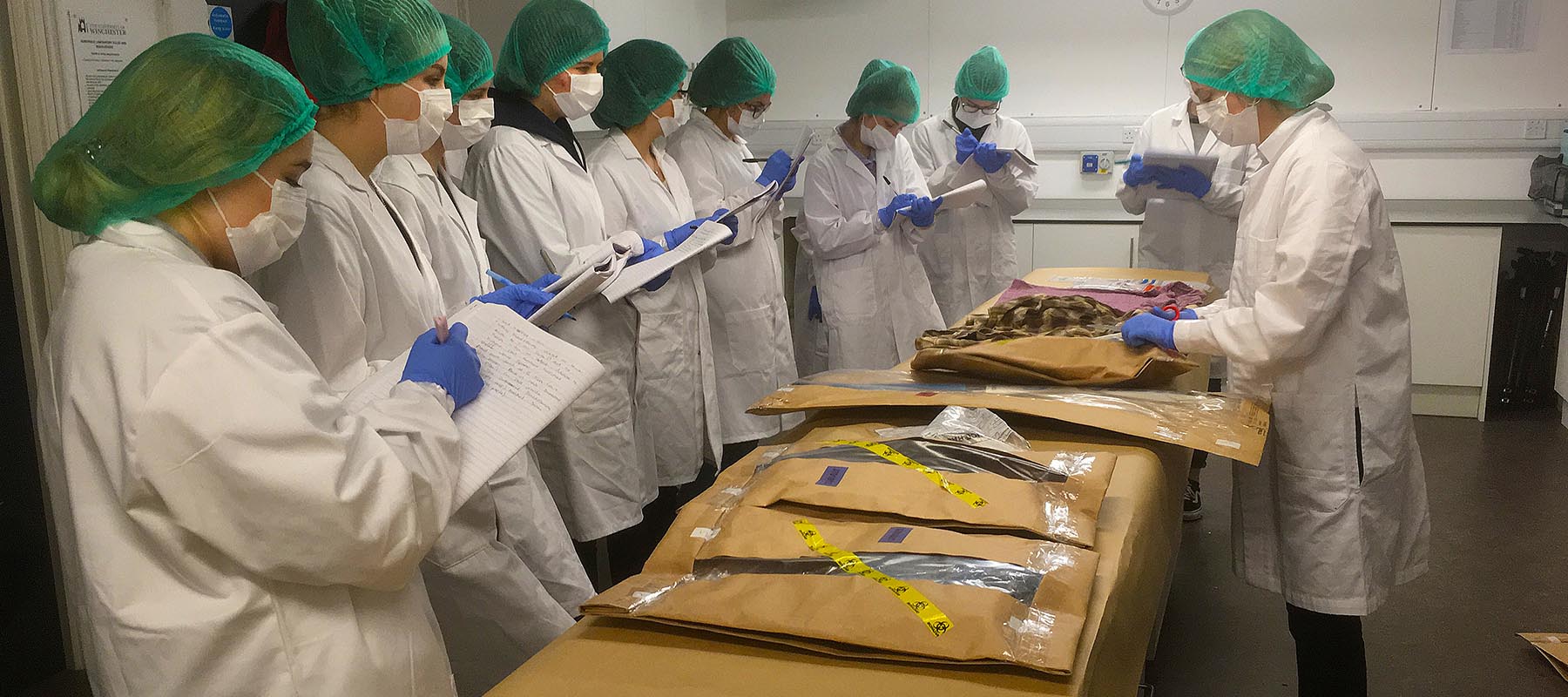
Following the announcement that the University of Winchester has joined a unique international project investigating cold cases, Oshina Ann Jose and Ingrid Hoff - both studying BSc (Hons) Cyber Crime and Forensic Investigation - share their experience of being part of the University's new Cold Case Unit and collaborating across borders.
We took the opportunity to join an international collaboration with the students in Germany, Australia and elsewhere in the UK working on a cold case in Germany. This was part of the newly developed University of Winchester Cold Case Unit (CCU), run by Anna Chaussée, Senior Lecturer in Forensics.
We were placed into groups with students from different parts of the world with various backgrounds for example, those from the police academy, and those studying forensic science, and psychology.
We first took on a training case to have an insight into how this ground-breaking collaboration would work. We had to study the case and work together and present our findings to the rest of the groups and the Criminal Director, Mr Karsten Bettels of the Lower Saxony Academy in Germany. We felt completely supported all the way through with a team of experts ready to assist us in the background.
Once the training case was completed, we were ready for the real thing. We both had some experience of working on the Justice Project at the University but a live cold case is completely different. Working on real cold cases is intellectually very challenging as we work to identify new lines of enquiries, potential witnesses, alternative scenarios and assessed the forensic potential of evidence from decades ago. Depending on the case, we may have access to photographs, crime scene sketches, and witness statements and much of our work can be completed using information within the public domain.
Once we had a look through the information provided and gathered additional information through our own enquires, we created presentations on case details and information available. We communicated where any potential might exist in any missed lines of inquiry in the original investigation.
Our work was then presented to the German police and prosecutors. Our presentations allowed us to put into practise our presenting and professional skills. We hope that our contribution to this project might highlight a structure and new methods of how to conduct further cold case investigations.
With this global cooperation we have been able to learn different perspectives of analysing and contributing our results across borders. All our contributions were completed virtually, working around different time zones, and breaking through language barriers. We had some eye-wateringly early starts to ensure our Australian colleagues could join in! Our experience has enhanced our practical thinking of our course during the global pandemic and we have learnt opportunities in virtual working.
We can also see how these experiences will assist our employability now that we can speak from case experience. We had to deal with confidentiality, approach sensitive subjects with professionalism, and learn how to voice our thoughts to those in authority.
Working on real cases has helped us understand the challenges facing investigative teams. It is just great to see the German police academy value our thoughts and allow us to apply what we have learned in our training and in our degree programme.
Our work will be broadcast on German television where some of the students, including Ingrid, were allowed to participate. The project is also to be found on Amber Alert Europe's webpage: https://www.amberalert.eu/cold-case-analysis-project/
Read the news story about the cold case project here.
Press Office | +44 (0)1962 827678 | press@winchester.ac.uk | www.twitter.com/_UoWNews
Back to media centre